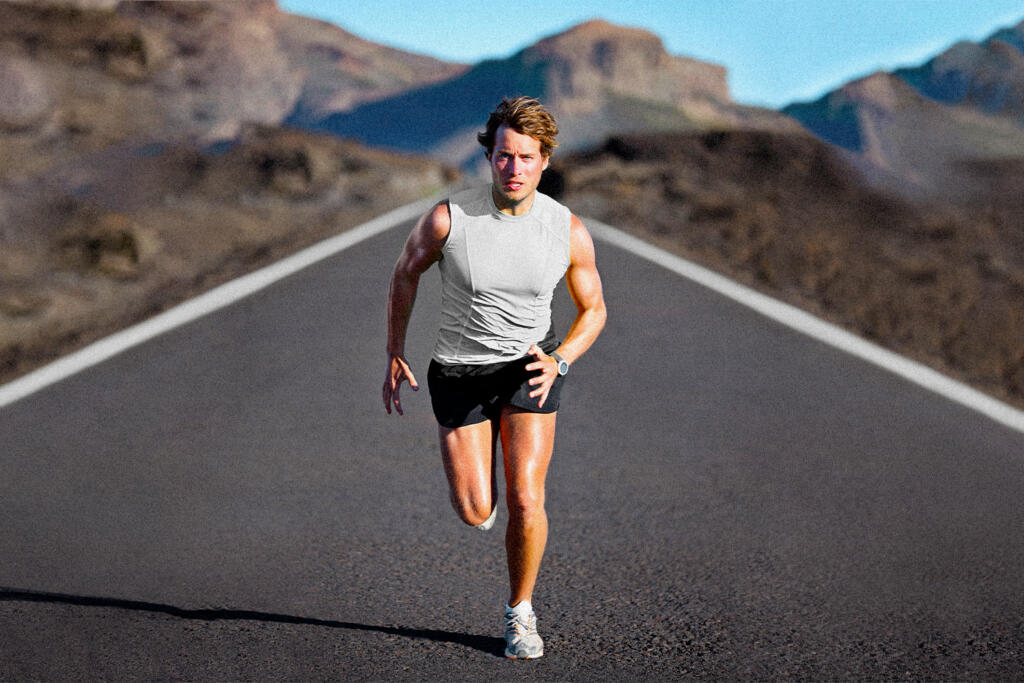Pop quiz: How many calories do you burn walking compared to running?
More importantly, which option is better for your weight loss routine?
The answer seems pretty obvious at first. Surely you burn a lot more calories running than you do just walking around. However, you might be surprised by the facts.
Walking offers a lot of the same benefits as running, plus it’s much easier for a lot of us couch potatoes to get used to.
Not only that but if you choose the right kind of walking exercise, you could find that you accomplish almost the same as you would if you were sweating on the running track.
Today, we’re going to take a closer look at the truth about calories burned walking vs. running. What’s more, we’re going to give you a handy insight into which type of exercise is right for you.

How many calories do you burn walking?
Okay, let’s start with the basics. How many calories do you burn walking?
Well, despite what you might think, there isn’t a huge difference between the calories you burn walking and the ones you burn running.
Research into the metabolic equivalents of certain activities ranks exercise by calories burned per kilogram per hour.
If you’re just sitting around doing nothing, you’ll burn 1 MET. That’s around 68 calories, per 150 pounds.
So, let’s break that down for a better answer to the question, “How many calories does running burn?”
A runner, and a fast walker, both going at a speed of around 5 miles per hour, would achieve the same MET of 8. However, you can burn slightly more calories if you’re a good runner.
If you’re just jogging, on the other hand, or going at a speed of around 5 to 9 miles per hour, either walking or running will expend almost the same number of calories.
The METs are higher for faster speeds because you cover more ground in the same time.
Say you weighed 160 pounds; walking would burn this many calories at different speeds:
- 85 calories – 2 mph
- 91 calories – 3 mph
- 100 calories – 4 mph
- 116 calories – 5mph
On the other hand, if you were running
- 116 calories – 5mph
- 118 calories – 6mph
- 119 calories – 7mph
- 123 calories – 8mph
As you can see, even going at relatively fast paces, you won’t burn too many extra calories running than you would going for a brisk walk.
What impacts walking calories burned?
There are a few things that affect your calories burned walking or running, including the speed that you move at. One significant factor for a lot of people is weight. The more you weigh, the more calories you’ll burn expending any kind of energy.
The bad news is that even adding weights to your walking routine might not change the calories you burn. Wearing a weighted vest that adds around 20 pounds to your jaunt will only increase your calories burned per mile by a small amount.
You’d burn the same extra calories just by walking for a few extra minutes.
Honestly, adding extra weight to your body to improve your loss of walking calories isn’t worth the extra strain on your muscles.
You’re better off:
- Walking or running faster: If you can build your walking speed to over 5 mph, then you’ll achieve a much higher calorie burn.
- Walking or running for a longer time: The farther you run or walk, the more calories you’re going to burn. Add about 10 or 15 minutes to your typical workout and build up your routine gradually.
- Make your routine harder: Another option to improve your calories burned walking, is to make your walk a little tougher. For example, you could try walking or running up an incline or hill to improve the intensity of your workout.
Is walking or running better for weight loss?
If you’re looking for ways to lose weight quickly, then you’ll definitely accomplish more with running.
When researchers looked into the weight loss of 15,000 walkers vs. 32,000 runners, they discovered that the calories burned through running led to 90% greater weight loss results.
However, there’s a lot more to getting fit and healthy than most people realise.
Walking up hill will sometimes burn the same level of METs as running in a straight line, for instance. It’s about making sure that the energy you expend is as significant as possible.
Remember, the whole foundation of weight loss is that your outgoing energy needs to be bigger than your incoming energy.
One great thing about running, is that it allows you to burn a lot more energy much faster. You can burn through calories quicker by covering a larger amount of space in a shorter time.
If you implement strategies to improve your calorie burn, like running up hill, you’ll accomplish even more.
Running also has another benefit – after-burn.
You know that bit after a run when you’re panting and sweaty? During that time, your body is still consuming large amounts of energy. Even after you’re done running, you’ll continue to burn calories.
Your body also needs the energy to recover from exercise. If you follow up your run with a walk home, you could seriously boost your weight loss potential.
Don’t underestimate calories burned walking
Of course, just because walking isn’t as energy or time-efficient as running for weight loss, doesn’t mean you should ignore it as an exercise strategy.
Walking still reduces your risk of high cholesterol, diabetes, and countless other problems, according to studies.
As a reliable form of low-intensity steady state cardio, walking can become a useful part of your full workout routine. You might find that if you’re exhausted after a trip to the gym, you can’t fit a full run in on your way home.
However, you can enjoy a walk to maintain some serious calorie expenditure and reduce your risk of injury too.
Remember, the difference in walking calories burned and running calories burned is pretty minimal if you’re walking at a brisk pace.
What’s more, walking has the extra benefits of maintaining core strength and improving endurance. If you need a recovery day after a pretty tough week of exercise, walking could be perfect for that.
Some athletes even switch between periods of walking and running during their exercise to ramp up their calories burned.
High-intensity interval training, where you jump between periods of low and high-intensity exercise helps you to avoid falling into a routine that your body is used to.

Should you be walking or running?
So, how can you choose between burning walking calories and running calories?
Ultimately, the best thing you can do is have a combination of both things in your routine.
Running will help you to burn more calories in less time. You’ll also get to benefit from that awesome burst of brain chemicals that running produces.
On the other hand, running can be a difficult process for some people, particularly during periods of workout recovery. That’s why it’s helpful to have sessions of walking in your schedule too.
If you’re getting used to exercise again after a period of inactivity, starting with plenty of walks might help you to get back into a suitable routine.
We’d recommend using running as your ultimate source of cardio if you need a good way to build the strength of your respiratory system and heart. On the other hand, you can use walking during recovery periods to maintain a good endurance level and calorie burn.
Maximising your calorie burn
It’s probably no surprise that vigorous periods of running wins out over walking when it comes to calories burned. However, calories aren’t everything. Fitness demands some level of cardiovascular exercise, but you don’t have to run non-stop to be healthy.
Taking advantage of different kinds of exercise throughout your weekly schedule will help you to get the weight loss results that you need. At the same time, you’ll find that walking may help you to recover faster, so you can jump back into your routine as fast as possible.
This article contains general nutritional tips and advice. However, no diet or exercise program should be started without consulting your physician or other industry professional first.
For more information read our full disclaimer here.
Blitz yourself better!
Now read these:
—Should you fast to lose weight?
—Get ripped at home with this workout.
—The ultimate workout water bottle.
—How to motivate yourself to workout.
—Lose your dad bod today!
